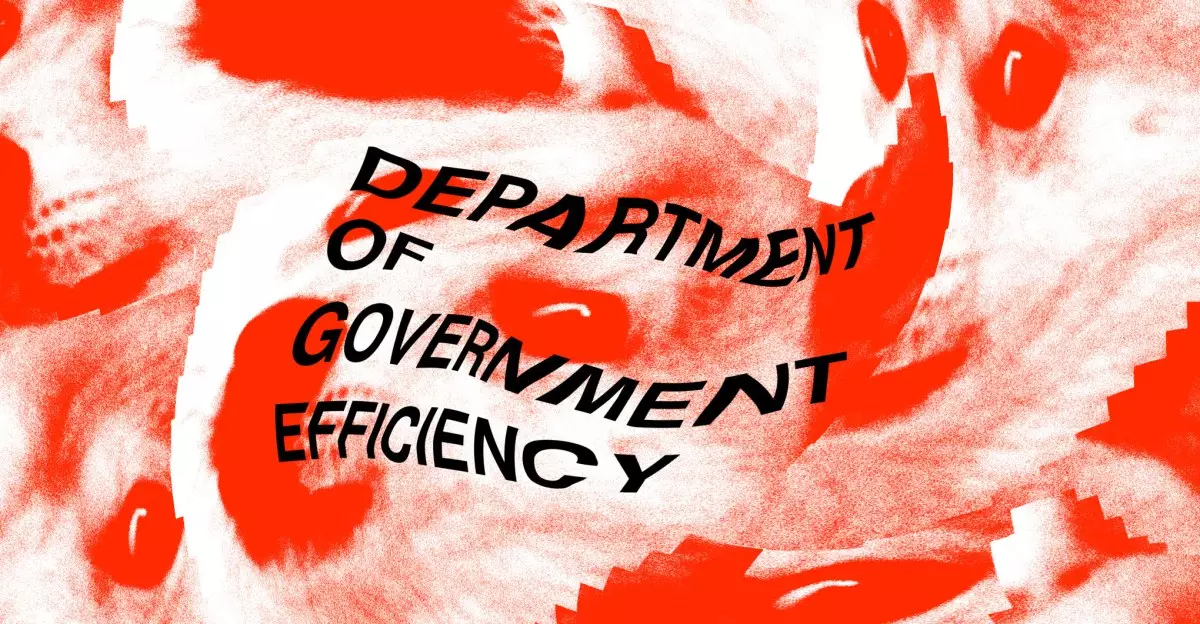In a striking move that has drawn both intrigue and skepticism, Elon Musk’s Department of Government Efficiency (DOGE) is planning to host a hackathon aimed at creating a “mega API” for Internal Revenue Service (IRS) data, as reported by Wired. This ambitious initiative seeks to facilitate the flow of IRS data into cloud platforms, ostensibly to streamline access for third-party software. The intention behind this mega API may seem laudable, targeting improved efficiency and modernized government systems. However, the execution plan raises significant red flags regarding data security, feasibility, and the qualifications of those at the helm of this venture.
The Timeline and Its Implications
DOGE’s proposed timeline to develop this API within just 30 days has been met with skepticism by IRS employees. Some experts believe this timeline is not only unrealistic but could also jeopardize the critical functions of the IRS itself. The notion that an API could be built in such a short timeframe while ensuring robust security measures and comprehensive data architecture raises substantial concerns. It could lead to a system plagued by vulnerabilities, potentially exposing sensitive taxpayer information to prying eyes.
It is essential to consider that managing IRS data is not just a technical challenge; it also involves navigating a vast labyrinth of laws and regulations designed to protect taxpayers and their information. The urgency displayed by DOGE may overlook the complexities involved in handling such a significant trove of sensitive data, which could undermine public trust in the system.
Inexperienced Hands on Sensitive Data
While innovation is critical in modernizing government systems, relying on a relatively inexperienced team to manage sensitive IRS data invites concern. Reports suggest that the operational heads of this project, including Gavin Kliger and Sam Corcos, lack substantive experience in tax law or even the intricate workings of government agencies. Such inexperience could be detrimental, as they may not adequately anticipate the nuances involved in managing IRS data. Such oversight could lead to catastrophic repercussions for taxpayers if confidentiality and security are compromised.
Furthermore, the involvement of a company known for its expansive data collection and surveillance capabilities raises ethical questions. Palantir’s potential role suggests a shift toward increased data visibility for government entities, which could easily veer into concerning territory regarding privacy rights and civil liberties.
Political Ramifications and Transparency Issues
The political backdrop against which DOGE operates cannot be ignored. Senator Ron Wyden’s recent correspondence with the IRS advocates for the agency’s rejection of DOGE’s overtures, illustrating a growing dichotomy between efficiency and transparent governance. The concerns raised by political leaders highlight the importance of maintaining strict oversight when dealing with taxpayer information, especially in light of conflicting agendas within governmental operations.
Overall, while embracing technology for improved government efficiency is imperative, the proposed mega API requires careful scrutiny. The plans laid out by DOGE, despite their grand ambitions, must prioritize security and robustness over rapid implementation. A hasty approach risks not only the integrity of taxpayer data but also the broader principles of transparency and accountability in government initiatives. It’s essential that we demand a more thoughtful, measured strategy that takes into account the long-term impacts of accessing and utilizing sensitive information.


Leave a Reply